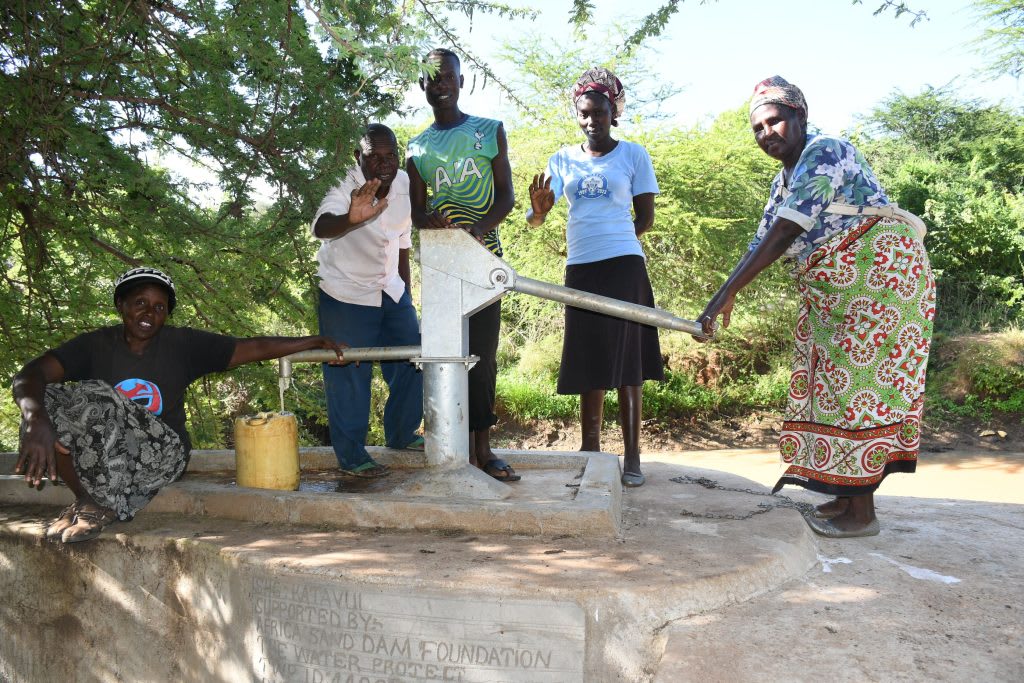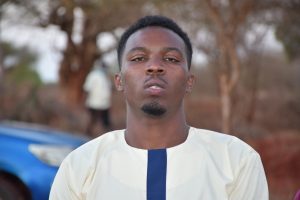The 1,600 people of the Katavui Community struggle to access sufficient water. Women and children are forced to travel long distances to collect water from a scoop hole (seen below), which is little more than a puddle in the sand, contaminated by animals and people alike.

Field Officer Alex Koech said, "The people (mostly women and children) wake up at dawn to search for water from the seasonal Kaliluni River. They walk for about 3 hours to the scoop hole at Kaliluni River. They have to wake up early. Otherwise, the water at the scoop hole runs out, and they have to wait till it collects more water."
The only other option is a well that is even further away. People in this community already have minimal resources, and this distance costs too much time and energy.
Alex continued, "[They] walk 5 kilometers (over 3 miles) to the community borehole before going back home towards the evening. Since most community members carry water on their backs, it has led to back aches and leg pain, especially among the elderly women."

"Despite my old age, I still have to fetch water for my family. The long journey while carrying water on my back has caused back and leg pain. Nowadays, I walk with a slight limp because of my left leg, which pains [me] a lot when [I] fetch water. Walking to the water point and then back home is also a tedious affair. I barely get time to focus on activities such as hygiene and sanitation or tending to livestock," said 55-year-old farmer Anastasia Mutave Mangala, seen below.

Children are just as affected by the water crisis.
10-year-old Kevin M. said, "I often accompany my mother to the water point to fetch water from the distant borehole after school. Thus, I do not have time to wash my clothes because I get tired from the long, exhaustive journey. I also go to school severely [late] without performing personal hygiene because I have to carry the little available water to school to quench my thirst."

"This affects [my] self-esteem and confidence and ultimately my academic performance. We are also often given agriculture and arts homework, which are difficult to perform because there is no water," Kevin continued.
The installation of the dug well will enable people like Anastasia and Kevin to focus on enhancing their futures through education and activities to improve their lives instead of spending all their time and energy collecting unsafe water.
"With the implementation of the water project, I will have enough clean water to drink and perform personal hygiene. My confidence in class will improve, and it will be easier to interact with fellow classmates," Kevin concluded.
Helping to solve the water crisis in this community will take a multi-faceted system. It requires the collaboration of the hand-dug well and a sand dam. They will work together to create a sustainable water source that will serve this community for years to come.
Note: Our proposed water point can only serve 300 people per day. We hope to continue working with this community to identify other water solutions that will ensure all of the people in this community have access to safe and reliable drinking water.
The Proposed Solution, Determined Together...
At The Water Project, everyone has a part in conversations and solutions. We operate in transparency, believing it benefits everyone. We expect reliability from one another as well as our water solutions. Everyone involved makes this possible through hard work and dedication.
In a joint discovery process, community members determine their most advantageous water solution alongside our technical experts. Read more specifics about this solution on the What We're Building tab of this project page. Then, community members lend their support by collecting needed construction materials (sometimes for months ahead of time!), providing labor alongside our artisans, sheltering and feeding the builders, and supplying additional resources.
Water Access for Everyone
This water project is one piece in a large puzzle. In Kenya, Sierra Leone, and Uganda, we're working toward complete coverage of reliable, maintained water sources that guarantee public access now and in the future within a 30-minute round trip for each community, household, school, and health center. One day, we hope to report that this has been achieved!
Training on Health, Hygiene & More
With the community's input, we've identified topics where training will increase positive health outcomes at personal, household, and community levels. We'll coordinate with them to find the best training date. Some examples of what we train communities on are:
- Improved hygiene, health, and sanitation habits
- Safe water handling, storage & treatment
- Disease prevention and proper handwashing
- Income-generation
- Community leadership, governance, & election of a water committee
- Operation and maintenance of the water point





 Protected Dug Well
Protected Dug Well
 Rehabilitation Project
Rehabilitation Project





























